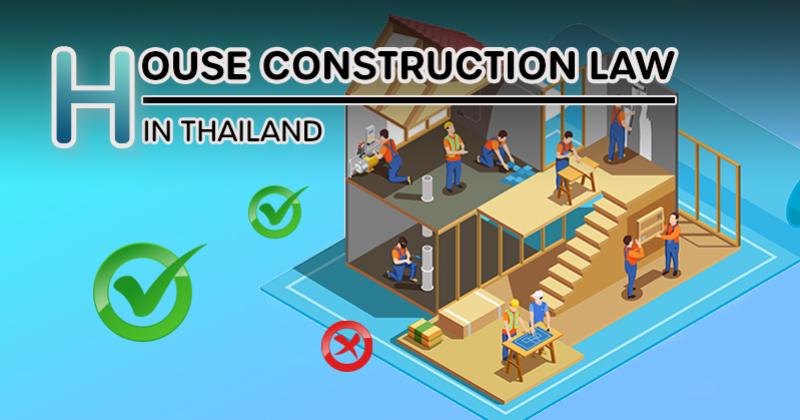
สร้างเมื่อ : 17 เม.ย. 2566
แก้ไขล่าสุดเมื่อ : 17 เม.ย. 2566
ขายบ้านยังไง ให้ขายได้เร็ว อัพเดตปี 2023
7 เคล็ดลับสำหรับผู้ต้องการขายบ้าน
สำหรับนักลงทุนอสังหาริมทรัพย์ หรือผู้ที่อยากจะขายอสังหาริมทรัพย์ ช่วงนี้อาจเป็นช่วงนาทีทองเลยก็ว่าได้ ในตลาดเกาะสมุย เนื่องจากการย้ายเข้ามาอาศัยอยู่ชั่วคราวหรือบางรายอาจถาวรของชาวต่างชาติที่ต้องการย้ายถิ่นฐานจากสภาวะสงครามระหว่างรัสเซียและยูเครน อีกทั้งชาวจีนที่ได้เปิดประเทศหลังปิดล็อคดาวน์โควิดมายาวนาน วันนี้ The Property Center มีเทคนิคดีๆ ที่ช่วยให้คุณขายบ้านหรืออสังหาริมทรัพย์ได้เร็วๆตามที่คุณคาดหวังไว้ค่ะ
1. ตั้งราคาให้เหมาะสม
ราคาถือเป็นปัจจัยหลักที่จะทำให้อสังหาริมทรัพย์ไม่ว่าจะเป็นบ้าน ทาวน์เฮ้าส์/ทาวน์โฮม คอนโด หรือที่ดิน ขายออกได้อย่างรวดเร็ว ดังนั้นการตั้งราคาขายจึงค่อนข้างสำคัญ และถูกหยิบยกขึ้นมาเป็นข้อแรก การตั้งราคาขายต้องดูหลายปัจจัย ไม่ว่าจะเป็น ราคาประเมินจากองค์กรอิสระหรือสถาบันทางการเงิน รวมถึงราคาตลาดหรือราคาซื้อขายจริงบนทำเลนั้น ๆ
2. ทำสินค้าให้น่าสนใจ
แม้คนส่วนใหญ่จะคิดเยอะกว่าเดิม กว่าจะควักเงินแต่ละบาทออกจากกระเป๋า แต่ก็ยังพบสัญญาณที่ดี ผู้ที่ต้องการซื้ออสังหาริมทรัพย์เพิ่มขึ้นอย่างมาก โดยเฉพาะการค้นหาผ่านช่องทางออนไลน์ถือเป็นโอกาสของผู้ที่ต้องการขาย แต่จะขายได้หรือไม่ ส่วนหนึ่งต้องสร้างความน่าสนใจให้สินค้า เพิ่มมูลค่าด้วยการปรับปรุงสินค้าให้สวยงามเหมือนใหม่ ให้ความสำคัญกับการปรับเปลี่ยนบ้าน หรือคอนโดให้เหมาะกับการ Work From Home มากขึ้น โดยอาจะเลือกใช้เฟอร์นิเจอร์ที่มีความยืดหยุ่น และมีประโยชน์ใช้สอยที่หลากหลาย นอกจากนี้ยังต้องใช้รูปภาพสวย ๆ ดึงดูดความสนใจ และให้ข้อมูลรายละเอียดที่ครบถ้วน
3. ลงประกาศขายที่อยู่อาศัย
ปัจจุบันมีช่องทางสำหรับผู้ที่อยากขายอสังหาริมทรัพย์มากมาย ทั้งแบบที่ต้องใช้เงินและแบบที่ไม่ต้องใช้เงิน กรณีที่เจ้าของขายเองก็สามารถถ่ายรูปบ้านในมุมต่าง ๆ ที่ต้องการนำเสนอพร้อมกับเตรียมข้อมูลพื้นฐานที่สำคัญ เช่น ทำเลที่ตั้ง ขนาดพื้นที่ต้องตัวบ้าน ระบบสาธารณูปโภคในบริเวณใกล้เคียง แล้วก็นำไปลงประกาศตามแหล่งต่าง ๆ ได้เลย พื้นที่สำหรับการประกาศขายที่อยากแนะนำมีดังนี้
– เว็บไซต์ซื้อขายอสังหาริมทรัพย์ ข้อดีคือ เว็บไซต์เหล่านี้มีการทำข้อมูลเพื่อดึงดูดผู้ที่สนใจซื้อขายที่อยู่อาศัยให้เข้ามาอย่างต่อเนื่อง โอกาสที่ลูกค้าจะได้เห็นบ้านหรือคอนโดที่ต้องการขายก็มีมากขึ้น
– กลุ่มที่เกี่ยวข้องกับอสังหาริมทรัพย์ใน Facebook อีกหนึ่งช่องทางบนโลกออนไลน์ที่ได้รับความนิยมมาก สามารถโพสต์เพื่อประกาศขายที่อยู่อาศัย แต่ต้องสอบถามกฎระเบียบของกลุ่มดังกล่าวก่อนว่าอนุญาตหรือไม่
– ติดป้ายหน้าบ้านและในบริเวณใกล้เคียง วิธีข้างต้นถือเป็นวิธีการบนโลกออนไลน์ แต่อีกหนึ่งวิธีออฟไลน์ที่ไม่ควรมองข้ามคือการติดป้ายประกาศ ซึ่งช่วยเพิ่มโอกาสให้กับผู้สนใจโดยเฉพาะในละแวกบ้านตัวเองได้ แต่อย่าลืมทำป้ายที่มีข้อมูลการติดต่อชัดเจนติดเอาไว้
4. ตรวจเช็กค่าใช้จ่ายที่ผู้ขายต้องรับผิดชอบ
ในการซื้อขายอสังหาริมทรัพย์ จะมีค่าใช้จ่ายที่ผู้ซื้อและผู้ขายต้องตกลงกันว่าใครจะจ่ายส่วนใด ซึ่งหากมีการตกลงให้เรียบร้อยก่อนขาย ก็จะช่วยให้การขายราบรื่น และเรียบร้อยมากขึ้น ค่าใช้จ่ายส่วนใหญ่มีดังนี้
– ค่าธรรมเนียมการโอนบ้าน คิดเป็น 2% ของราคาประเมินที่ดินรวมสิ่งปลูกสร้าง โดยทั่วไปจะแบ่งจ่ายกันคนละ 1% ระหว่างผู้ซื้อกับผู้ขาย หรือในกรณีที่ผู้ขายเป็นบุคคลธรรมดาไม่ได้ลดราคาบ้านให้ แต่ผู้ขายมีข้อเสนอเป็นผู้จ่ายค่าธรรมเนียมโอนบ้านทั้งหมด หรือกรณีอื่น ๆ ตามข้อตกลงกันระหว่างผู้ซื้อและผู้ขาย
– ค่าภาษีธุรกิจเฉพาะ โดยทั่วไปเป็นค่าใช้จ่ายของผู้ขาย คิดเป็น 3.3% ของราคาซื้อขาย ทั้งนี้ผู้ขายต้องครอบครองบ้านเป็นระยะเวลาไม่เกิน 5 ปี แต่หากครอบครองมากกว่า 5 ปีขึ้นไป หรือมีชื่ออยู่ในทะเบียนบ้านเกิน 1 ปี ก็จะไม่ต้องจ่ายค่าภาษีธุรกิจเฉพาะ แต่ผู้ขายต้องจ่ายค่าอากรแสตมป์แทน
– ค่าอากรแสตมป์ โดยทั่วไปเป็นค่าใช้จ่ายของผู้ขาย คิดเป็น 0.5% ของราคาซื้อขาย แต่ต้องไม่ต่ำกว่าราคาประเมินที่ดิน หากต่ำกว่า ให้ใช้ราคาประเมินที่ดินมาคำนวณ แต่ในกรณีที่ผู้ขายเข้าข่ายต้องจ่ายภาษีธุรกิจเฉพาะก็ไม่ต้องจ่ายค่าอากรแสตมป์
– ค่าภาษีเงินได้บุคคลธรรมดา กรณีที่ผู้ขายเป็นบุคคลธรรมดา ผู้ขายต้องชำระค่าภาษีนี้เพราะเป็นผู้มีรายได้จากธุรกรรมซื้อขาย การคิดค่าภาษีเงินได้บุคคลธรรมดาเป็นแบบอัตราก้าวหน้าหรือแบบขั้นบันได และจำนวนเงินที่เสียภาษีก็ขึ้นอยู่กับวิธีการที่ได้มากับจำนวนปีที่ถือครอง เช่น หากได้มาด้วยการซื้อและถือครองนาน ก็จะต้องชำระค่าภาษีโอนบ้านเป็นจำนวนมาก ทั้งนี้พิจารณาจากราคาประเมินที่ดินและสิ่งปลูกสร้างของกรมที่ดินแล้ว นั่นหมายความว่าจะจ่ายค่านายหน้าก็ต่อเมื่อได้เงินจากผู้ซื้อแล้ว
5. สัญญาต้องไม่พลาด ป้องกันการเสียเปรียบ
สัญญาซื้อขายเป็นเอกสารที่มีความสำคัญอย่างยิ่งในการซื้อขายบ้าน จึงต้องพิจารณาทุกรายละเอียดอย่างรอบคอบ ซึ่งสัญญาที่ดีก็ทำให้ผู้ซื้อ รวมถึงผู้ขายอุ่นใจด้วย โดยสัญญาที่ดีจะต้องมีข้อมูลสำคัญเหล่านี้
– ขนาดและราคาซื้อขาย ต้องตรวจสอบให้แน่ใจว่า ขนาดที่ดิน พื้นที่บ้าน และราคาในสัญญาจะซื้อจะขายนั้นเป็นไปตามที่ตกลงกันไว้ ส่วนสัญญาซื้อขาย (ท.ด.13) จะต้องมีการตรวจสอบราคาซื้อขายบ้านและเลขที่โฉนดที่ดินในสัญญาให้ถูกต้องด้วย
– วันที่นัดโอนกรรมสิทธิ์ สัญญาจะซื้อจะขายต้องกำหนดวันที่นัดโอนกรรมสิทธิ์ โดยต้องเผื่อเวลาสำหรับการยื่นขอสินเชื่อและตรวจรับบ้านด้วย หากสัญญาจะซื้อจะขายไม่มีวันนัดโอนกรรมสิทธิ์ สัญญานั้นก็จะกลายเป็นสัญญาซื้อขายที่เป็นโมฆะไปโดยปริยาย
– การรับผิดชอบค่าใช้จ่าย การซื้อขายบ้านจะมีค่าใช้จ่ายต่าง ๆ เช่น ค่าธรรมเนียมการโอนกรรมสิทธิ์และภาษีอากร ซึ่งอาจกลายเป็นปัญหา หากผู้ซื้อและผู้ขายไม่ตกลงกันให้ดีว่าใครจะเป็นผู้รับผิดชอบค่าใช้จ่ายส่วนไหน ดังนั้นจะต้องระบุในสัญญาจะซื้อจะขายให้ชัดเจน
– เบี้ยปรับเมื่อผิดสัญญา หากผู้ขายมีความล่าช้าในการส่งมอบบ้านหรือขอยกเลิกโดยที่ผู้ซื้อไม่ได้ทำผิดสัญญา ผู้ซื้อมีสิทธิ์คิดเบี้ยปรับรายวันได้ในอัตราไม่ต่ำกว่า 0.01% แต่รวมกันไม่เกิน 10% ของราคาซื้อขาย และเบี้ยปรับควรระบุไว้ใน สัญญาอย่างชัดเจน
– ข้อตกลงและเงื่อนไขอื่น ๆ ทั้งผู้ขายและผู้ซื้อต้องตรวจสอบให้แน่ใจว่าตนเองจะได้รับความเป็นธรรมในสัญญาทุก ๆ ข้อ เช่น การยกเลิกสัญญา การคืนเงินมัดจำ และการรับประกันบ้าน ส่วนสัญญาซื้อขายจะระบุเงื่อนเพิ่มเติมในส่วนท้ายของสัญญา โปรดอ่านให้ครบถ้วนก่อนเซ็นสัญญาร่วมกัน
6. นายหน้า ตัวช่วยสำคัญ
หากไม่มีความรู้และประสบการณ์ในการขาย รวมถึงเรื่องกฎหมาย การเงิน ขั้นตอนทางราชการ การขายอสังหาริมทรัพย์อาจเป็นเรื่องยากและซับซ้อน แนะนำให้ใช้บริการนายหน้า ผู้ช่วยคนสำคัญที่จะมาช่วยขายเริ่มตั้งแต่
– ให้คำแนะนำในการเตรียมบ้านก่อนประกาศขาย เช่น การตกแต่งและการตั้งราคาขาย กรณีบ้านมือสอง นายหน้าสามารถตรวจสอบจุดบกพร่อง ประเมินบ้าน และให้คำปรึกษาเพื่อปรับปรุงและช่วยให้บ้านขายได้ง่ายในราคาดี
– ทำการตลาด หาลูกค้า ติดต่อ และดำเนินการต่าง ๆ รวมถึงพาลูกค้าไปดูบ้านและปิดการขาย
– จัดเตรียมสัญญาซื้อขายบ้าน แจ้งให้เจ้าของบ้านเตรียมเอกสารต่าง ๆ และช่วยอำนวยความสะดวกในการซื้อขายและโอนกรรมสิทธิ์
สำหรับค่านายหน้า โดยทั่วไปจะคิดที่ 3% ของราคาซื้อขาย หรืออาจต่อรองให้น้อยลงกว่านี้ได้หากบ้านที่จะขายมีราคาสูงมาก และนายหน้าจะเก็บค่านายหน้าเมื่อทำสัญญาซื้อขายเรียบร้อย
7. ใส่ใจเรื่องความสะอาด
ไม่ว่าจะเป็นในช่วงนี้ที่มีการระบาดของเชื้อไวรัสโควิด-19 หรือไม่ก็ตาม หนึ่งในเรื่องสำคัญที่ไม่ควรละเลยก็คือเรื่องของความสะอาด ก่อนขายควรมีการทำความสะอาดบ้านและคอนโดก่อนที่ผู้ซื้อจะเข้าอยู่อาศัย ซึ่งจะเอื้อประโยชน์ต่อการขาย เพราะบ้านหรือคอนโดที่สะอาด สามารถดึงดูดใจ หรือสร้างความประทับใจแรกให้กับผู้ซื้อหรือผู้เช่าตั้งแต่แรกเห็นนั่นเอง
ทั้งหมดนี้เป็น 7 เทคนิคดี ๆ ช่วยให้ขายบ้านออกง่าย แม้ในช่วงนี้ที่ดูเหมือนว่าภาวะเศรษฐกิจจะชะลอตัว แต่ก็ยังพบสัญญาณที่ดี มีผู้ที่ต้องการซื้ออสังหาริมทรัพย์เพิ่มขึ้น เป็นโอกาสที่ผู้ขายจะใช้เทคนิคเหล่านี้พิชิตใจผู้ซื้อ
หากเจ้าของบ้านท่านใด ไม่สะดวกหรือไม่มีเวลา และต้องการให้ทางเราช่วยจัดการเรื่องเหล่านี้แทนท่าน เรามีลูกค้าที่ติดต่อเรามาทุกวัน ต้องการหาบ้านหรืออสังหาริมทรัพย์อื่นๆ สามารถนำทรัพย์ของท่านมาฝากเราขายได้ ปล่อยให้มืออาชีพทำงานแทนคุณแล้วคุณรอรับยอดขายอย่างเดียว The Property Center ยินดีต้อนรับท่านเจ้าของบ้านทุกท่านค่ะ เรามีทีมงานโพสต์ตามสื่อออนไลน์ต่าง ๆ จัดทำโฆษณาลงโซเชี่ยวและมาร์เก็ตเพลสต่างๆ แทนท่าน บริการเหล่านี้ฟรี เพียงแต่เราคิดค่านายหน้า 3-5% เท่านั้น ติดต่อเราด่วนค่ะ

